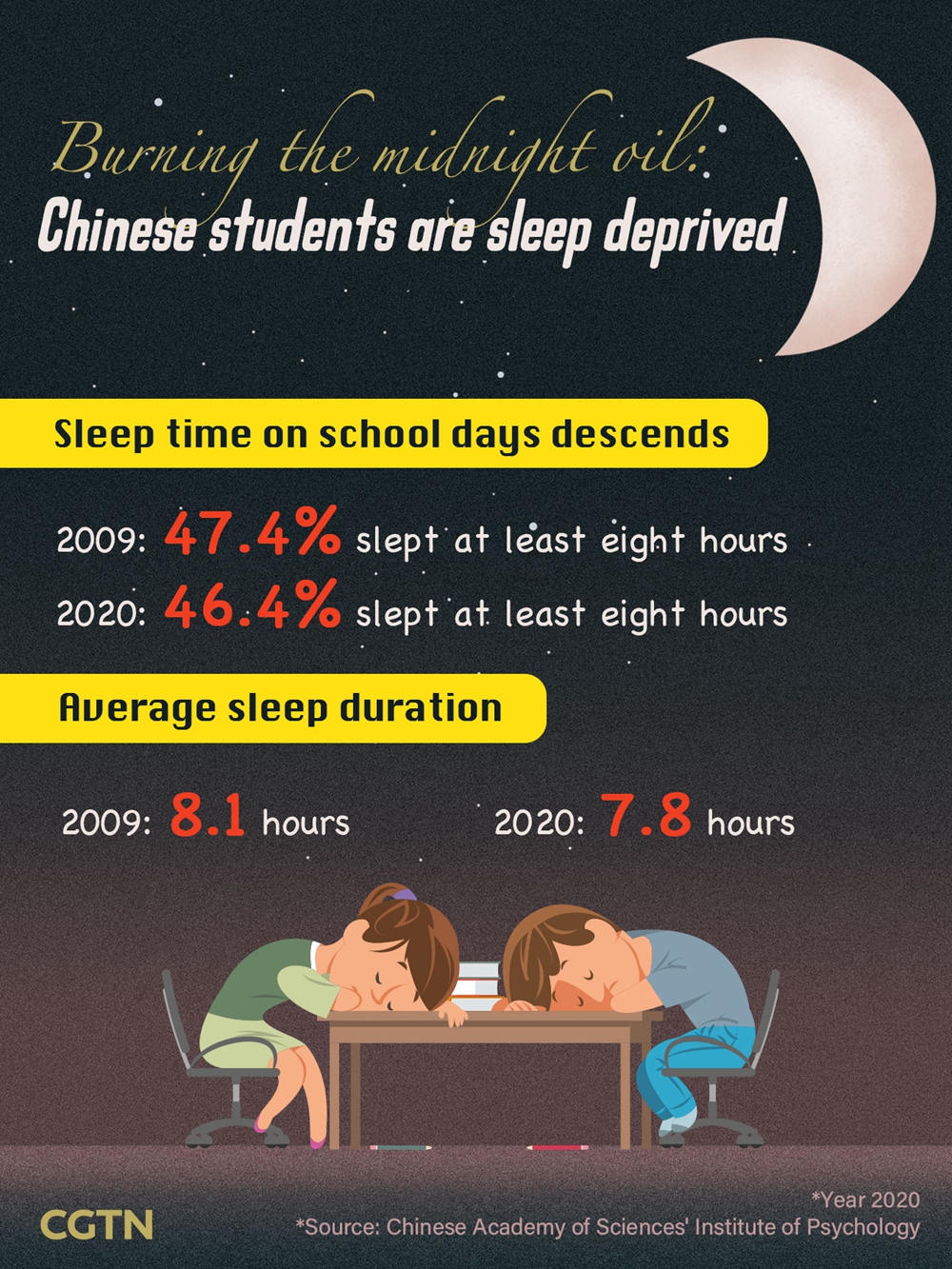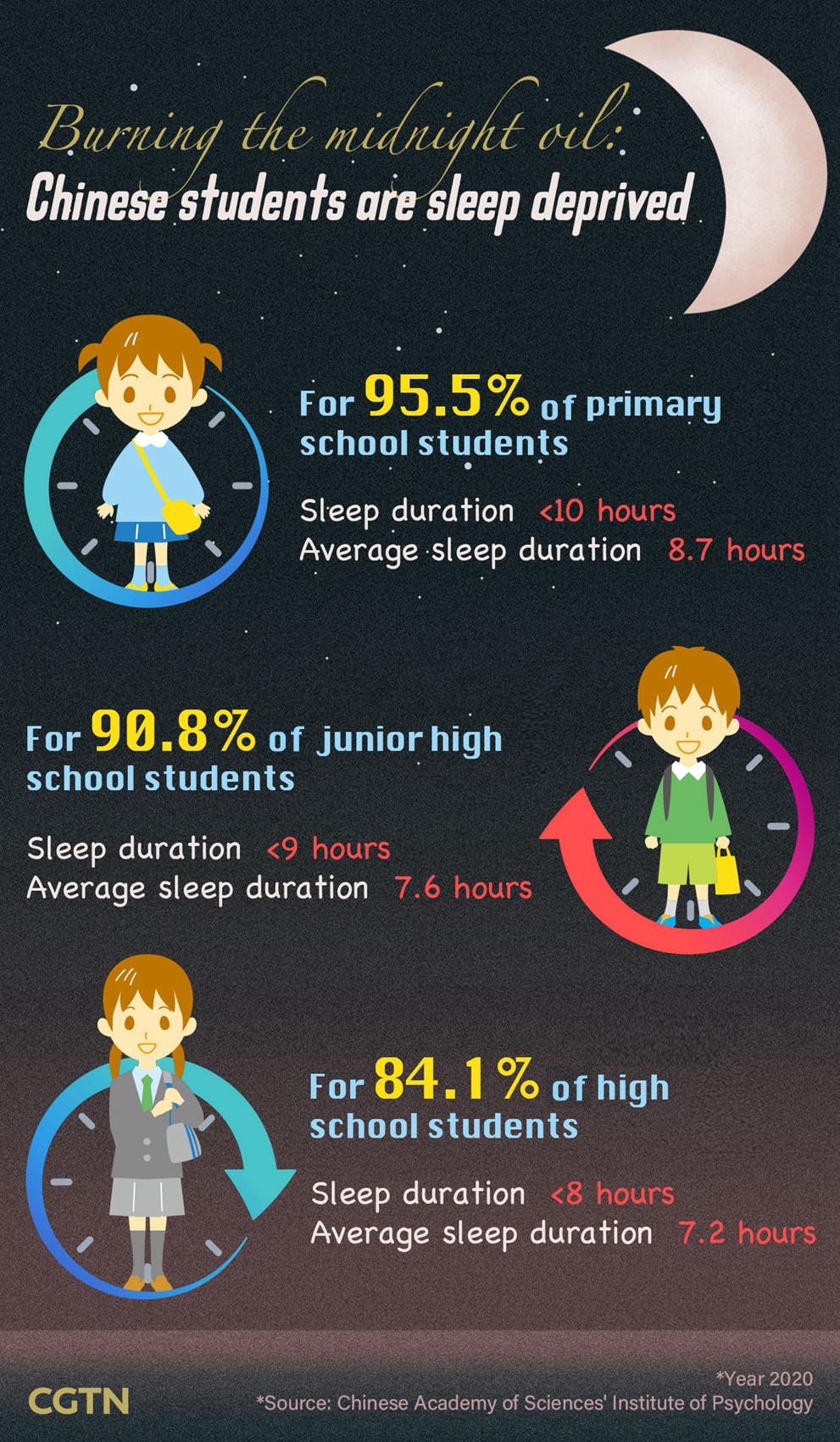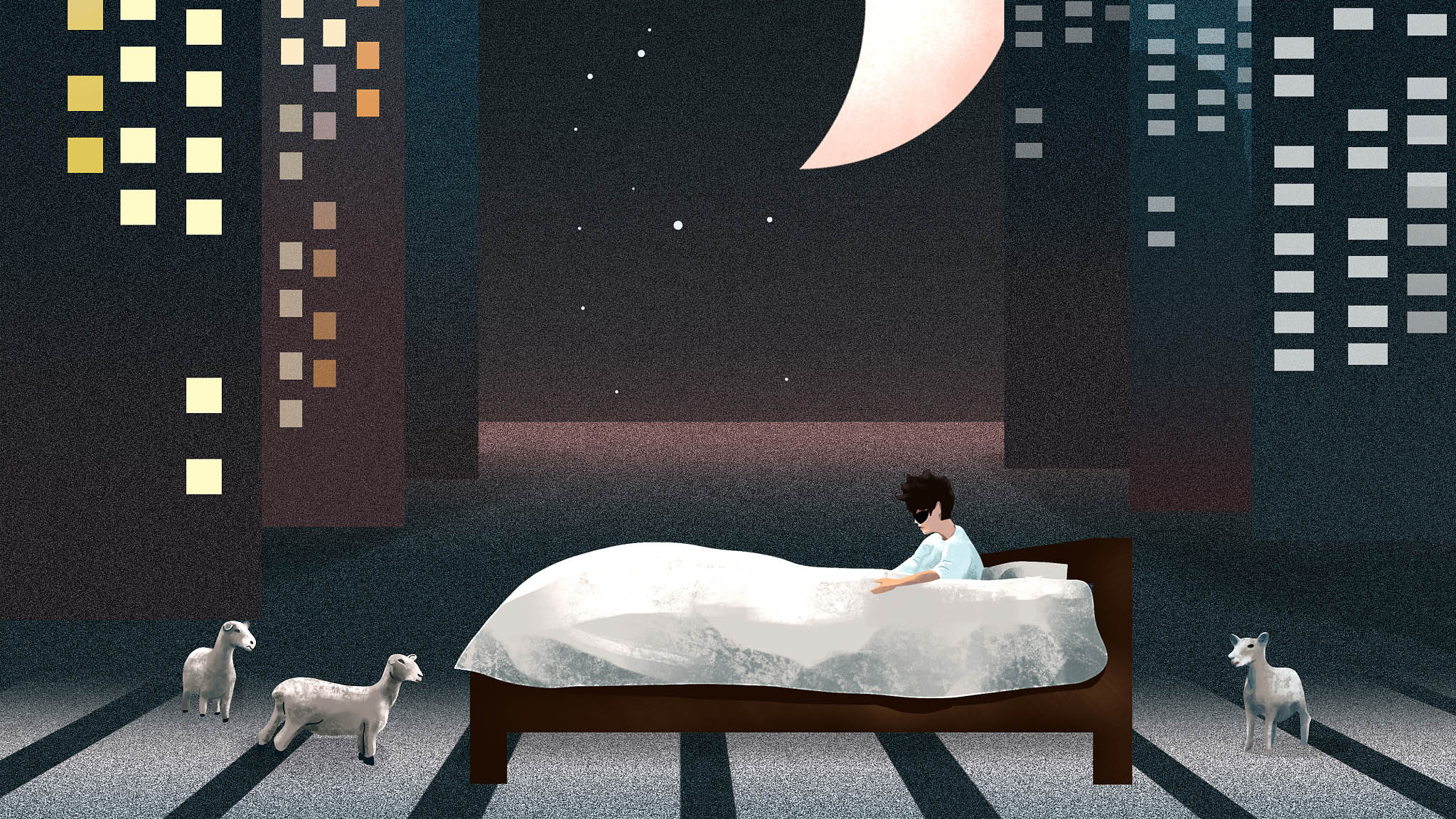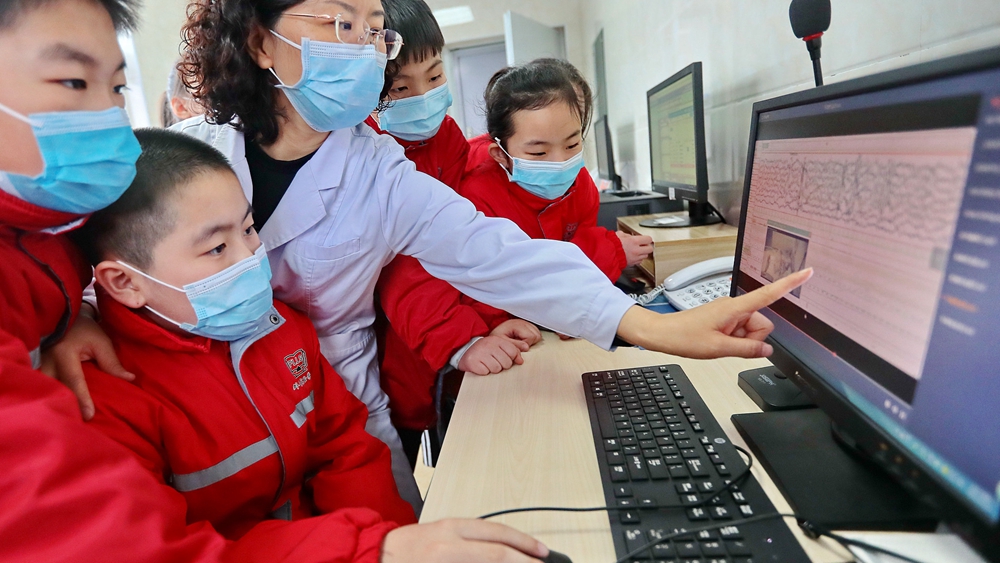02:36

"My grandson usually sleeps at nearly 11 every night. He is in second grade. It's really worrying to see him sleep so late," said Sun Jian, a 70-year-old Beijinger on his way to pick up the young boy after school.
Sun's grandson is not an individual case. According to a blue paper on national mental health released by the Chinese Academy of Sciences' Institute of Psychology in early March, Chinese children and teenagers are getting less and less sleep, with more than 80 percent getting insufficient sleep on school days.
Grade school students snoozed an average of 7.8 hours a night on school days in 2020, while the hours' length stood at 8.1 in 2009. The blue paper showed that only 46.4 percent slept for at least eight hours, compared with 47.4 percent in 2009.

Though not a sharp decrease, the poor sleeping trend has prompted an action plan launched by the National Health Commission in 2019 to promote the health of Chinese citizens by laying out health-related measures to be taken from 2019 to 2030.
According to the plan, primary school students are recommended to get a minimum of 10 hours of sleep at night, nine hours for junior high school students and eight hours for high school students.
In terms of the standards, more than 95 percent of students in primary school, nearly 91 percent of those in junior high school and 84 percent of students in high school do not get enough sleep on school days, the blue paper showed.
The reasons for teens' insufficient sleep vary.
"I sleep less as I advance to higher grades," said Ma Yue, a seventh-grader at Beijing Chenjinglun High School. She added that she is somewhat efficient in completing school work in time to get nine hours of sleep on school nights.

Liu Xiang, a tenth-grader at Chenjinglun High School in Beijing, agreed with Ma that he also has less sleep after advancing to higher grades, since higher grades often means heavier school work.
Students' poor self-control also contributes to their lack of sleep. Ma's schoolmate Wu Haoyu admitted he often plays mobile games after doing a bit of homework. "Due to poor study habits, I usually sleep late, sometimes at 11 pm," said Wu.
Zhao Shuai, Liu's schoolmate, also has poor study habits. "I can't keep myself from not seeing or touching my mobile phone after going home. It makes me hard to fully concentrate on schoolwork," said the 11th-grader.
As for Sun, one of the main reasons for his grandson's lack of sleep is that his family usually has supper at nearly 8:30 each night as his son and his daughter-in-law often come home late on weekdays.
"After having lunch, my little grandson has to chat and play with his parents and also take a bath. After doing all these things, the time ends up being around 11 p.m.," said Sun.
00:20

The insufficient sleep heightens the students' chances of developing cognitive, mental and physical health problems, according to the blue paper.
The adolescents' lack of sleep has caught the attention of policymakers. Earlier in March, Tao Kaiyuan, CPPCC member and vice-president of the Supreme People's Court, expressed concern that students' amount of sleep is greatly insufficient, which prevents them from having enough time to interact with their peers.
In Tao's opinion, overemphasis on school performance results affects the spiritual development of adolescents and the development of personal interests.
"A country can only be a strong country when the adolescents are strong," said Tao, adding that teens with a strong body, mind and ambition can shoulder their responsibilities and pursue a better future.
Experts warned insufficient sleep might have negative effects on adolescents' memory and emotions, urging parents to play a role in guaranteeing enough sleep.
Many teenagers sleep after midnight, so they will have less deep sleep, which in turn harms restoration of cognitive function and the secretion of bodily hormones, said Gao Xuemei, deputy director of the Sleep Medicine Center at Peking University Health Center.
"Many parents blindly ask their children to sacrifice their sleep to prioritize their studies. But they need to understand that only through good sleep can their children learn efficiently, remember things and react quickly," said Huang Zhili, president of the Chinese Sleep Research Society.

Students learn how a good sleep helps their body and mental development at a hospital in Qinhuangdao City, north China's Hebei Province, March 18, 2021. /CFP
Students learn how a good sleep helps their body and mental development at a hospital in Qinhuangdao City, north China's Hebei Province, March 18, 2021. /CFP
Parents are told to avoid using smartphones frequently in front of their children, and try to prevent them from using electronic devices when doing their school work or before they sleep.
"As parents, they can chat with their children and help them make plans to complete their schoolwork and their studies, thus guaranteeing enough sleep for their children," Song Meixia, expert on adolescent mental health education, told Youth Daily.
Insufficient sleep is not only hurting adolescents in China, their counterparts in other parts of the world are also struggling with sleep deficit.
As early as 2011, worldwide studies showed that nearly 53 percent teenagers are getting less than eight hours of sleep per night on school days. A report from the American Academy of Pediatrics in 2014 showed that students in the U.S. don't get enough sleep, hinting that delaying the day may help teens get more rest.
Ensuring adolescents have enough sleep has been included into the to-do list for the Ministry of Education in 2021. Their main concentration will be on the students' school work, sleep, their use of mobile phones, their readings and their body health.
"We will see how schools can assist parents to ensure students have enough and sound sleep," said Minister of Education Chen Baosheng.
Writer: Yao Yao
Video Editor: Cheng Weitong
Graphics Designer: Liu Shaozhen
Cover Image Designer: Yin Yating
Cameraman: Su Kun
Chief Editors: Chen Ran, Xu Jian

